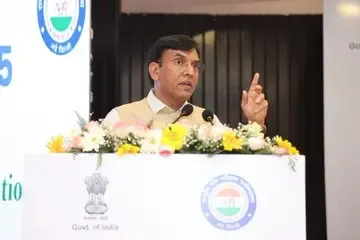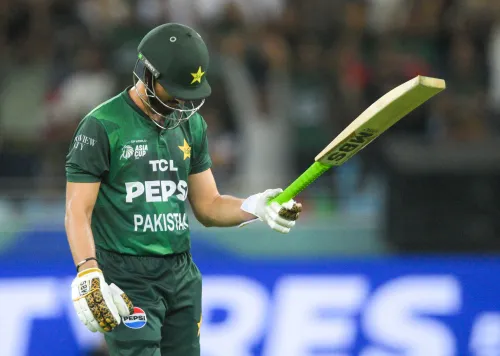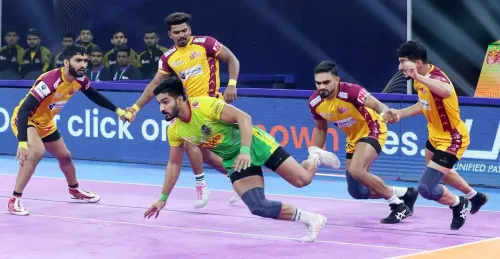Union Minister Mansukh Mandaviya Stresses Early Doping Education

Synopsis
Key Takeaways
- Importance of early education on doping in schools.
- Commitment to clean sports by the Government of India.
- Involvement of sports federations is crucial.
- Advanced research is vital in anti-doping science.
- Collaborative efforts are necessary for integrity in sports.
New Delhi, March 19 (NationPress) Union Minister of Sports Mansukh Mandaviya officially launched the National Dope Testing Laboratory (NDTL) Annual Conference-2025, centered on the theme “Anti-Doping Science: Innovations and Challenges” in New Delhi on Wednesday.
The conference saw participation from Smt. Raksha Nikhil Khadse, Union Minister of State for Youth Affairs and Sports, Smt. Sujata Chaturvedi, Secretary (Sports), Shri Kunal, Joint Secretary (Sports), and Prof. P. L. Sahu, Director, NDTL.
During his keynote speech, Dr. Mansukh Mandaviya reaffirmed the Indian Government’s dedication to fostering clean and fair competition in sports. He highlighted the significance of early education regarding doping, advocating for its integration into school curricula and the initiation of awareness campaigns in rural regions. He also called for enhanced participation from sports federations and organizations to ensure all athletes are well-informed about anti-doping regulations. Moreover, he underscored the critical role of advanced research and technological progress in anti-doping science, emphasizing their importance in safeguarding athletes’ careers and maintaining the integrity of national and international sports.
This event served as an essential platform for scientists, coaches, physical education experts, sports federations, and students to engage in meaningful discussions on the latest developments and challenges in anti-doping science. The conference spotlighted the vital role of scientific innovation in doping detection, tackled the ever-evolving nature of prohibited substances, and stressed the need for a unified effort to preserve the integrity of sports.
Subject matter experts participated in comprehensive discussions on several key issues, including innovations in anti-doping science, where they examined cutting-edge advancements in detection methods and testing technologies. They also addressed the hurdles in doping prevention, concentrating on strategies to counter emerging threats such as the increase of undetectable substances. Additionally, the discussions highlighted the role of stakeholders in promoting clean sports, emphasizing the necessity for collaborative efforts among federations, scientists, and educators to raise awareness, strengthen enforcement, and uphold the integrity of sports.
The conference also featured interactive sessions, expert panel discussions, and knowledge-sharing initiatives aimed at enhancing anti-doping measures in India. The enthusiastic involvement of young scholars and students demonstrated a growing commitment to ethical sporting practices and highlighted the significance of such initiatives.









